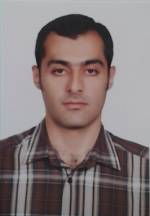
Compressed sensing and related optimizations
Arash Amini - Associate Professor, Sharif University of Technology
Wed, 7-Apr-2021 / 19:30 / Link:
https://vc.sharif.edu/ch/soal
Video Slides Poster
Abstract
The cornerstone of current digital world is the sampling concept which transforms real-word analog signals into the digital domain. Multimedia signals such sound, image and video are well-known examples. It is also oftentimes observed that sampled signals can be compressed considerably without affecting the quality perceivably. This implies that the signals of interest inherently contain certain types of redundancies which allow for the compression. One of the well-studied forms of redundancy is when the signal lives in a much lower dimensional sub-space compared to its ambient dimension. Such signals are known to have sparse representations. Compressed Sensing refers to the general class of sampling/recovery techniques that employ this inherent sparsity. The main goal in compressed sensing is to be able to reconstruct a signal with as few samples as possible. The results show that it is possible to devise a simple sampling technique in return for a much sophisticated recovery procedure. The best performing recovery methods are based on advanced optimization techniques.
In this talk, besides introducing the compressed sensing problem and some of its applications, I will discuss a few optimization-based recovery methods. I will also touch the subject of mixed-norm optimization which is more relevant to this year's Optimizer challenge.
Bio
Arash Amini received the B.Sc., M.Sc., and Ph.D. degrees in electrical engineering (communications and signal processing) and the B.Sc. degree in petroleum engineering (reservoir) from the Sharif University of Technology, Tehran, Iran, in 2005, 2007, 2011, and 2005, respectively. He was a Researcher with the Ecole Polytechnique federale de Lausanne, Lausanne, Switzerland, from 2011 to 2013, working on statistical approaches toward modeling sparsity in continuous-domain. He joined Sharif University of Technology as an assistant professor in 2013, where he is now an associate professor since 2018. He has served as an associate editor of IEEE Signal Processing Letters from 2014 to 2018. His research interests include various topics in statistical signal processing, specially compressed sensing.